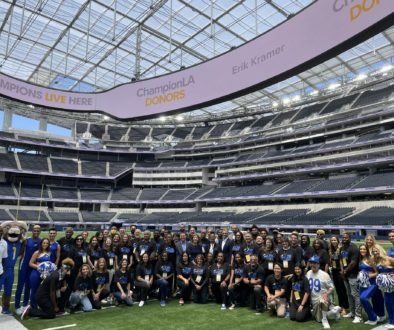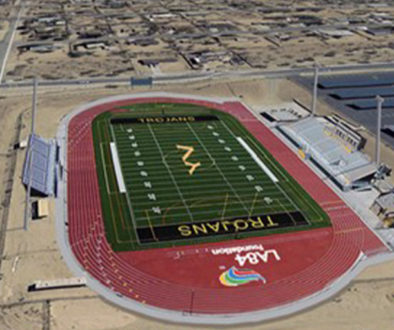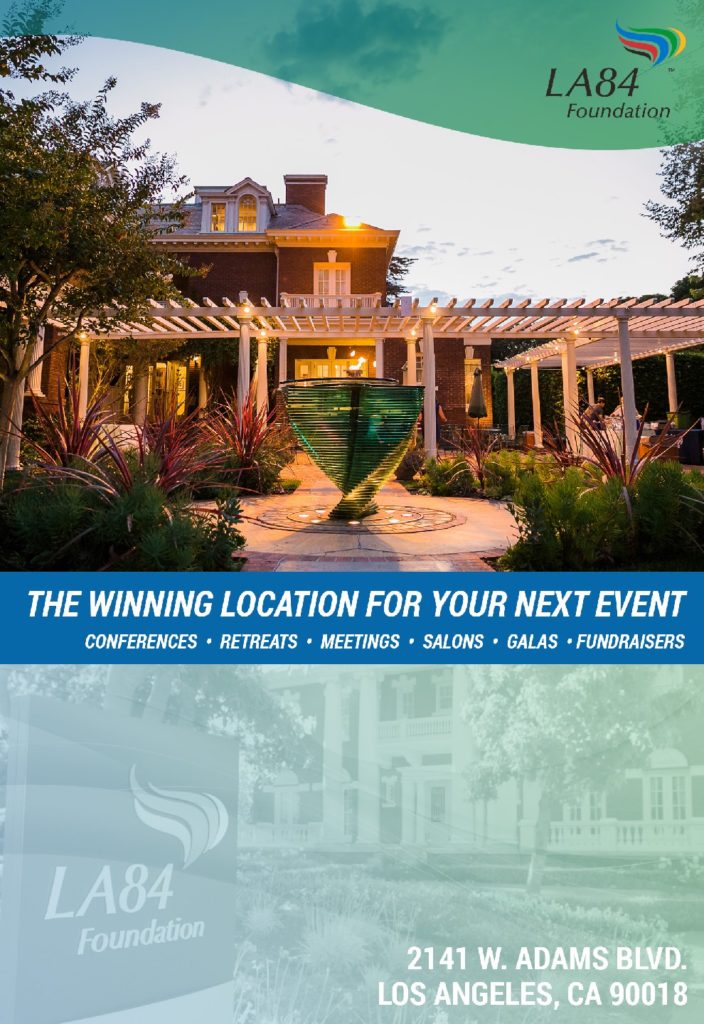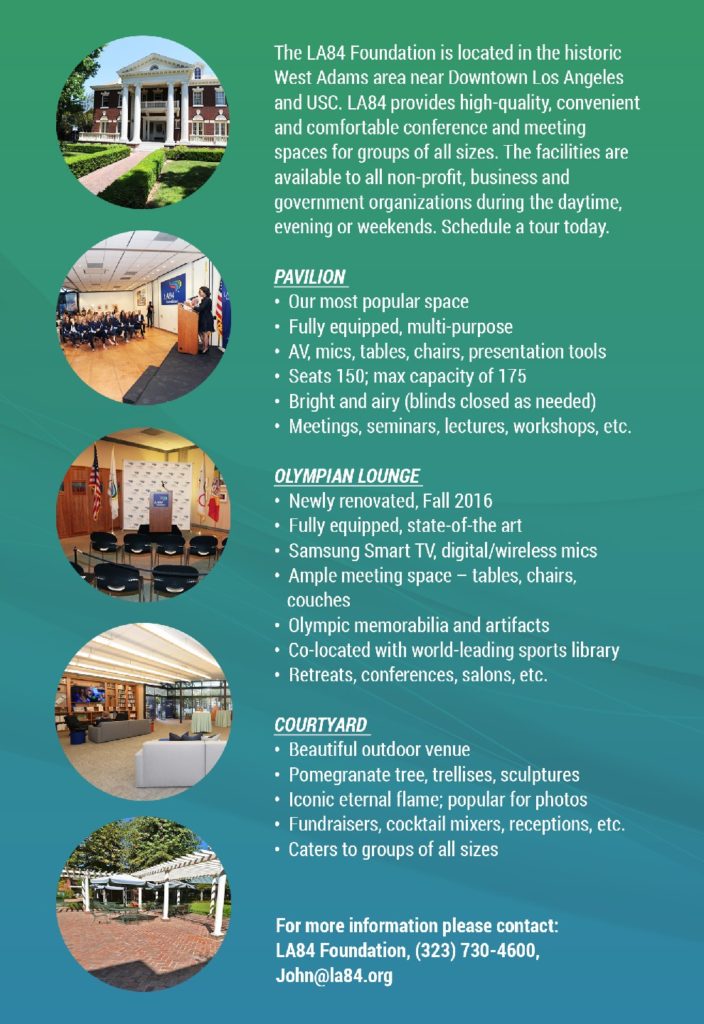2017 LA84 Summit Recap – The Transformative Power of Sports: Building Communities
By Jonathan Reid
Panelists
Lawrence Cann, Founder and CEO, Street Soccer USA
Sarah Cooper, Executive Director, Yalla San Diego
Brendan Tuohey, Co-founder and Executive Director, PeacePlayers International
Moderator: Kenneth Shropshire, CEO, Global Sport Institute
To appreciate the transformative power of sport, it’s important to understand that partnerships and communities play a major role in making play a reality for youth. This panel spoke candidly about funding and networking, as well as the need to be strategic and creative in their approach to making programs sustainable and equitable for their constituents.
“These programs have to be year-round,” said Touhey, kicking off the panel. “They can’t be one-off events. They need to be owned and led by people in the communities, and there needs to be a leadership pipeline.”
READ MORE: LA84, 400+ Attendees Celebrate Play For All Movement At 2017 LA84 Foundation Summit
For Cann and Street Soccer USA, which works with homeless youth, “we really surrounded folks with teammates… We started building community clubs in low-income neighborhoods that are front-end [for] sports, and back-end social service coordination.”
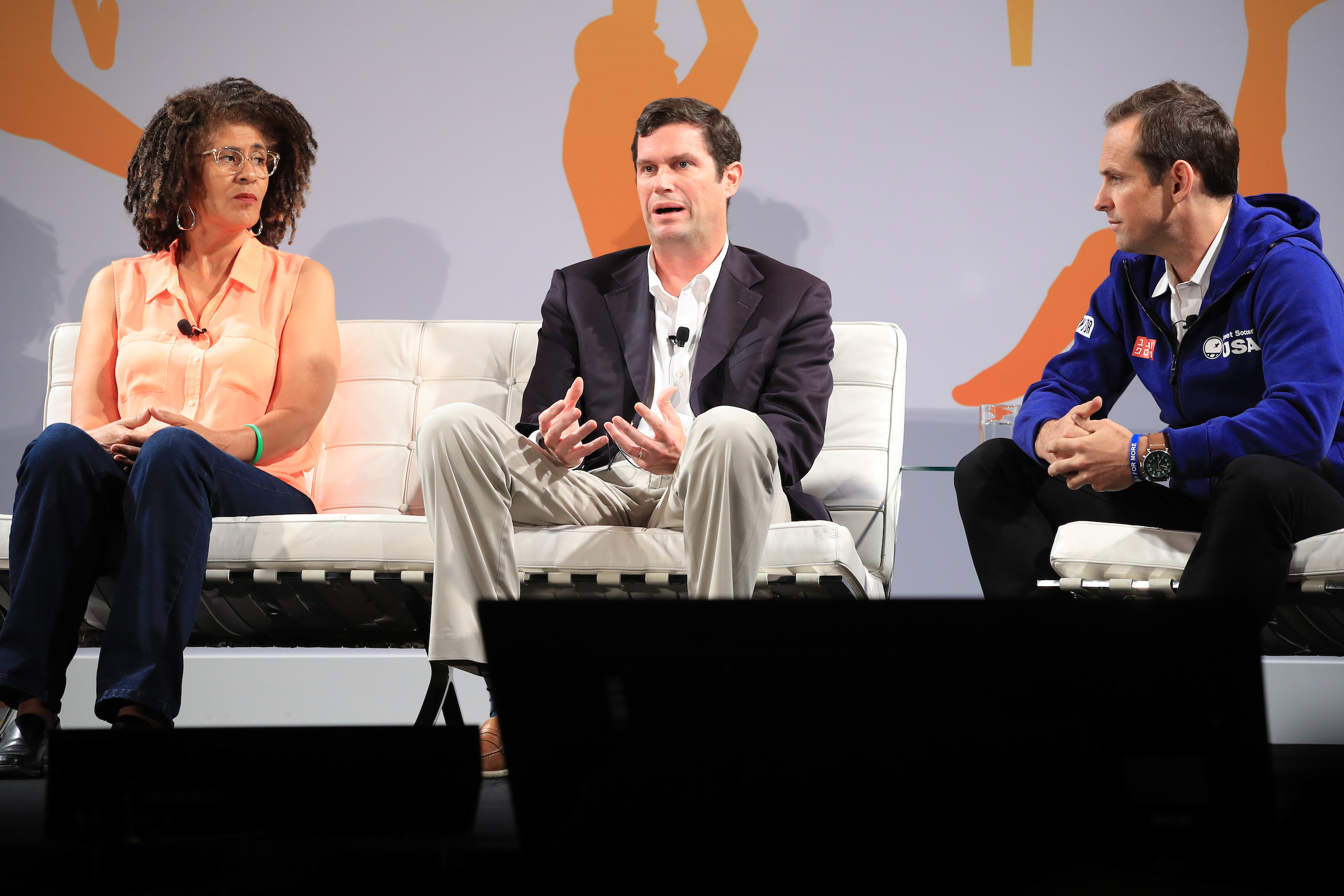
What About Funding?
For Cooper and Yalla San Diego, a major focus is on building a community structure that can reduce the need for large-scale funding resources. “We work with volunteers, with many of our employees having started as volunteers. We work with universities to get interns. We train up kids so they move into coaching and referee roles.” Added Cooper:
“Building those connections with actual people is the glue that keeps us together.”
For Tuohey, the onus too is on staying local. “For us, our four year-round programs internationally are funded from local sources,” he said. “It’s not easy, but the fact that in these places, people show the value it [programs] brings them.”
Brendan Tuohey noted the programs have to be, “owned and led by people in the communities.” At PeacePlayers International, Tuohey has created a leadership pipeline, where players become coaches and peer mentors.
Cann added a relatively unusual source of income to Street Soccer USA: Earned income. Street Soccer USA also runs adult soccer leagues, which include tournaments, that allow them to re-invest profit back into their after-school and youth programs. Another key piece? Getting local elected officials engaged. “It’s super-critical, because it ties you into the community,” Cann said. “It’s their house.”

Getting Programs Off The Ground
PeacePlayers International, which focuses on basketball programs and positive relationships between law enforcement and community members, was brought into Kansas City in 2015 in the wake of the Ferguson unrest in Missouri. “We were very fortunate to bring discussions with Nike, and we were part of their equality campaign last January,” Tuohey said.
“This has led to us starting programs in Baltimore, Brooklyn, and Detroit this past June, as well as LA, Chicago and Memphis soon. What they saw is that you can’t rush this. You can’t show up and say ‘we’re here and know what we’re doing.'” The program focuses on building capacity, which also asked communities to take a risk in investing time and resources in the local programs. “If you’re not in it for the long term, don’t even start.”
READ MORE: LA84, City Council President Wesson Launch Street Soccer USA in LA
“We’re trying to approach the process in a very analytical way and collect all the data we can to make sure we know what the model is before thinking about scale or spreading out or sharing,” Cooper said. “In order to know how we do what we do. Getting down to the details.”

Work In Action
Tuohey gave one anecdote on how nonprofits can show their funders the impact of their work, referring to his program in Jerusalem and the West Bank. “In 2015, we had a Under-18 girls team that was five Israelis and five Palestinians. Before PeacePlayers started, Arab and Palestinian kids had never been in a league before. It took five or six years to get it off, but we had this great video from a championship game. Our team is playing an all-Israeli team, and one of our girls makes the basket as the buzzer sounds. You can’t design this better. You see all of the bench, the Palestinian and Israeli parents, going nuts. You see these girls gather at half court and celebrating the championship, but, more importantly, what it means… You can’t do that in any other platform than sport. You wouldn’t see that experience, those friendships, that joy and what people are witnessing anywhere else but sports.”
So, What Works?
Cooper: “Making real connections to actual people.”
Tuohey: “The power of collaboration and partnership… the only way we’re going to move the needle.”
Cann: “If you aren’t responsive and you aren’t flexible, the programs aren’t going to work. That has to be the perspective. It’s from the bottom up.”
